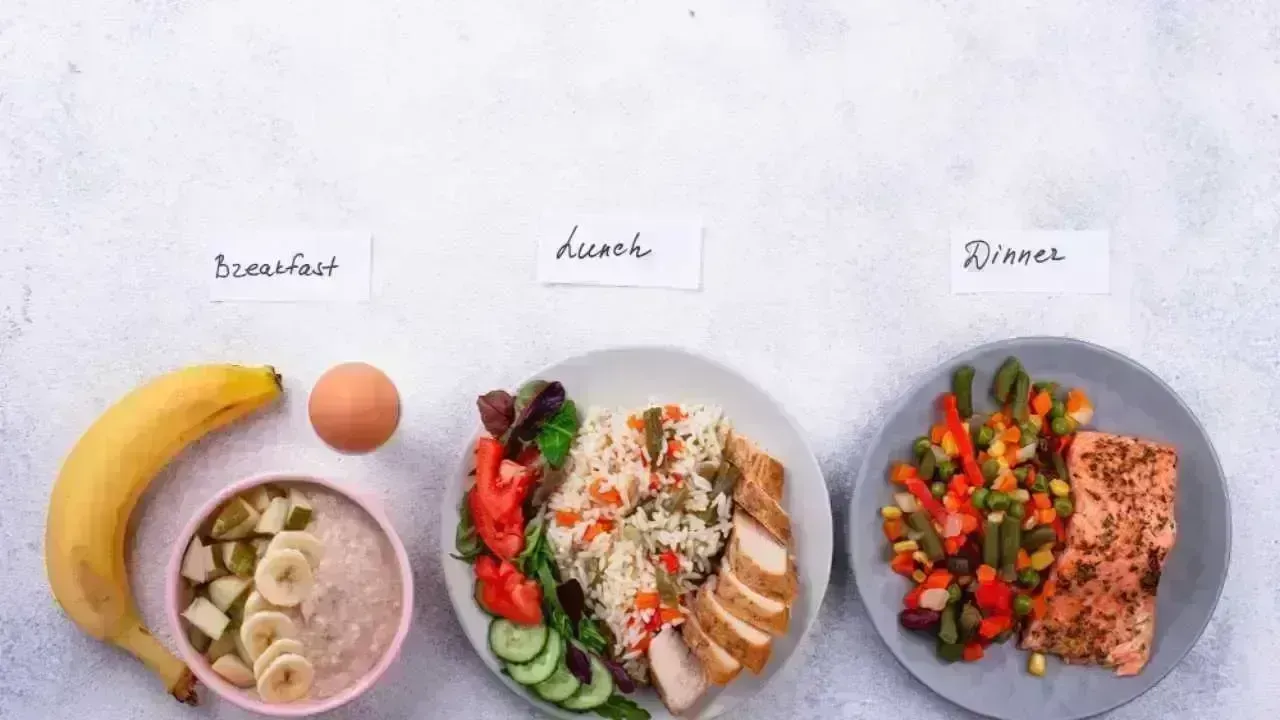
Post by : Mikhael Nasser
Many individuals grow up receiving different perspectives on how frequently one should eat. While some advocate for the traditional three meals per day, others endorse consuming five to six smaller meals to ward off hunger. Today, with fast-paced lifestyles, some people forgo meals due to time constraints.
Considering the plethora of advice available, a pressing question often arises: What is the ideal number of meals for optimal health?
The reality is straightforward — there's no universal meal frequency that accommodates everyone. Varying lifestyles, digestion rates, hunger signals, work commitments, and individual health statuses play integral roles in shaping one’s eating habits. The key is to establish a routine that sustains energy levels, promotes comfort, and prevents excessive eating.
This article delves into how the frequency of meals influences bodily function and offers guidance on establishing an eating routine that aligns best with your personal life.
To remain active, your body requires regular nourishment. Overindulgence in meals can lead to lethargy, while insufficient intake may result in irritability or excessive eating later in the day.
Your eating habits can impact:
Energy levels
Hunger and cravings
Weight management
Focus and concentration
Sleeping patterns
Digestive efficiency
This underscores the significance of selecting a suitable eating pattern, which many may overlook.
This is the most recognized routine consisting of breakfast, lunch, and dinner.
Why it works:
Simple and straightforward
Integrates seamlessly into daily schedules
Allows ample time for digestion
Minimizes unnecessary snacking
Best suited for:
Students
Office personnel
Individuals with predictable routines
Those who appreciate structure
This routine works optimally with a hearty breakfast, a balanced lunch, and a light dinner.
Some opt for smaller meals spread out over the day.
Benefits include:
Stabilizes blood sugar levels
Reduces sudden hunger pangs
Prevents overeating
Ideal for those engaged in regular workouts
Supports muscle development
Best for:
Fitness enthusiasts
Individuals with active occupations
Anyone frequently feeling hungry
People requiring consistent energy
It's crucial to choose nutritious options for these meals, avoiding unhealthy snacks.
Individuals participating in intermittent fasting may only consume two meals, typically a late breakfast and early dinner.
Advantages encompass:
Lowers overall calorie consumption
Allows for extended digestive breaks
Aids in weight management
Can assist with blood sugar regulation
Most suitable for:
People who don’t often feel hungry in the morning
Those adhering to fasting schedules
Individuals focusing on weight loss
However, this method may not be ideal for everyone—particularly individuals with acidity, diabetes, or other specific health issues.
Signs your meal frequency is appropriate include:
Consistent energy throughout the day
Rarely feeling extreme hunger
Minimal cravings for unhealthy foods
Smooth digestion
Comfortable sleep
No overeating in the evening
If contrary symptoms persist, consider adjusting your routine.
Here’s an easy reference according to various lifestyles:
Three meals plus one light snack (such as fruit or a handful of nuts).
Five to six smaller meals throughout the day.
Two to three meals based on hunger and activity level.
Three meals plus one or two healthy snacks to meet heightened energy needs.
Small meals every 3-4 hours to manage blood sugar and acid levels.
Remember, an ideal meal frequency should align with your unique body requirements, not someone else’s habits.
Regardless of your chosen meal pattern, beginning the day with a substantial breakfast significantly impacts health.
A nutritious breakfast ought to incorporate:
Protein (such as eggs, dal, paneer, curd, or sprouts)
Fiber (like whole grains, fruits, or oats)
Healthy fats (including nuts and seeds)
Omitting breakfast may lead to:
Lack of energy
Overeating later on
Increased cravings
Mood swings
Diminished concentration
Enjoy breakfast within 1-2 hours of waking
Maintain a gap of 4-5 hours between main meals
Prevent extreme hunger
Hydrate with water prior to meals
Opt for a lighter dinner
Avoid food for at least 2 hours before bedtime
Adopting these straightforward habits supports digestion and aids in maintaining a balanced weight.
The question of how many meals per day constitute a healthy routine varies per individual. While some flourish on two meals, others thrive on three or a greater number of smaller meals. The best approach is the one that enhances your energy, ensures comfortable digestion, and maintains balanced hunger levels.
Your perfect meal structure should:
Keep your energy levels high
Diminish junk food cravings
Support your physical wellness goals
Align with your daily routine
Assist in maintaining a healthy weight
In essence, the guiding principle is to pay attention to your body's signals and adopt an eating routine that feels instinctively right.
This article serves general informational purposes and should not substitute for medical guidance. Meals and dietary requirements differ for each individual. Prior to altering your eating habits—especially if you have health conditions like diabetes, acidity, hormonal disorders, or are on medication—consult with a healthcare professional or nutritionist.










McCullum Encourages England Fans to Stay Hopeful Following Ashes Setback
England's coach Brendon McCullum reassures fans to remain optimistic as the team faces challenges af

Sonam Kapoor Shines in Stylish Maternity Fashion
Sonam Kapoor redefines maternity style with fashionable looks as she announces her second pregnancy.

Meezaan Jafri Discusses the Unique Challenges Faced by Star Kids
Meezaan Jafri sheds light on the pressures star kids endure in Bollywood, challenging the notion of

R Ashwin Slams England's Careless Play Following Ashes Defeat
R Ashwin condemned England's reckless approach and weak batting after their heavy loss to Australia

Pakistan Shaheens Triumph Over Bangladesh A in Asia Cup Final
The Pakistan Shaheens clinched the Men's Asia Cup Rising Stars 2025 with a Super Over victory agains

KL Rahul Assumes Captaincy for India’s ODI Series Against South Africa
KL Rahul steps in as India's ODI captain against South Africa; Jadeja returns after eight months awa